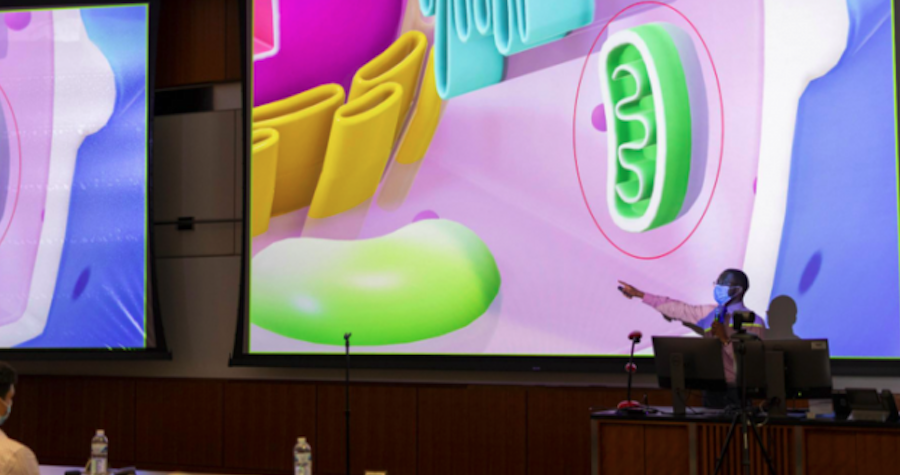African American Researching Training Scholars present neuroscience research at 1st symposium

The University of Kentucky Spinal Cord and Brain Injury Research Center (SCoBIRC) hosted a symposium earlier this month featuring its first class of African American Research Training Scholars (AARTS).
The five scholars each gave a presentation on their research in neurotrauma.
“This scholarship program was established by support from the Kentucky Spinal Cord and Head Injury Research Trust to provide vital research opportunities for Black undergraduate students at the University of Kentucky,” said Joe Springer, professor and interim director of SCoBIRC. “This is part of the SCoBIRC’s continued efforts to promote diversity in neuroscience, a field in which Black and African American students and faculty are underrepresented nationwide. The goal is to provide students the opportunity to participate in state-of-the-art research and develop professional skills that will prepare them for the next steps in their careers.”
The AARTS program was developed by Springer along with Mark Prendergast, Warren Alilain and Zel Madison.
The AARTS program supports five students each year studying neuroscience in the UK College of Arts and Sciences. The $5,000 award covers a summer stipend and travel expenses to present at a national meeting. Each scholar conducts research in the laboratory of a faculty member studying brain or spinal cord injuries.
The scholars, their project names and their faculty mentors include:
- Nolan Abdelsayed — “Meningeal lymphatic Deregulation Following Traumatic Brain Injury” (Mentor: Adam Bachstetter)
- Jordon Burdette — “Cellular Regeneration in the Injured Spinal Cord” (Mentor: Warren Alilain)
- Urim Geleta — “MicroRNA-223 Modulates Inflammatory Signaling and Autophagy in Bone Marrow-Derived Macrophages” (Mentor: Joe Springer)
- Alexa Halliburton — “Considering Sex as a Biological Variable in Spinal Cord Injury Inflammation and Locomotor Recovery” (Mentor: John Gensel)
- Bisimwa “Jack” Nzerhumana — “Mitochondrial Uncoupling Promotes Energy Metabolism Following TBI” (Mentor: Pat Sullivan)




